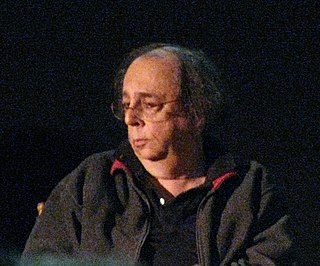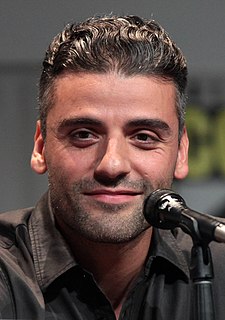A Quote by Jacques Derrida
That is what deconstruction is made of: not the mixture but the tension between memory, fidelity, the preservation of something that has been given to us, and, at the same time, heterogeneity, something absolutely new, and a break.
Related Quotes
Memory is strange. Scientifically, it is not a mechanical means of repeating something. I can think a thousand times about when I broke my leg at the age of ten, but it is never the same thing which comes to mind when I think about it. My memory of this event has never been, in reality, anything except the memory of my last memory of that event. This is why I use the image of a palimpsest - something written over something partially erased - that is what memory is for me. It's not a film you play back in exactly the same way. It's like theater, with characters who appear from time to time.
Allah has tailor made the test for each and every one of us and none of us will be given something which we can't bear. I am given something that I can bear and you are given something that YOU can bear. The tests won't be the same for you and me. This is why suicide is the a great wrong because by suicide you're basically declaring, 'Oh Allah this is too much, I can't take it anymore!
Every purchasing decision involves a trade-off between what I call fidelity and convenience. Fidelity is the total experience of something - how great the experience is. Convenience is how easy it is to get something. A live concert is a high fidelity way to experience music; an MP3 file is a high convenience way to experience music. Depending on the situation, one or the other is probably pretty appealing. What's not appealing is something that offers neither.
There is no rigorous and effective deconstruction without the faithful memory of philosophies and literatures, without the respectful and competent reading of texts of the past, as well as singular works of our own time. Deconstruction is also a certain thinking about tradition and context. Mark Taylor evokes this with great clarity in the course of a remarkable introduction. He reconstitutes a set of premises without which no deconstruction could have seen the light of day.
In memory, you can access something from the past, anything that you've experienced that you remember - it's there. Now, you might have a memento of it in a photograph or in a film or a building or some clothes that you wore. There might be something that connects you to this memory. But all of us are just all caught in this time, whatever that is.
Something is missing: that's as close as I can come to naming the sensation, an awareness of missed or thwarted connections, or of a great hollowness left where something lovely and solid used to be. ...There is something fundamentally insatiable about being human, as though we come into the world with a kind of built-in tension between the experience of being hungry, which is a condition of striving and yearning, and the experience of being fed, which may offer temporary satisfaction but always gives way to new strivings, new yearnings.
The gods weave misfortunes for men, so that the generations to come will have something to sing about.” Mallarmé repeats, less beautifully, what Homer said; “tout aboutit en un livre,” everything ends up in a book. The Greeks speak of generations that will sing; Mallarmé speaks of an object, of a thing among things, a book. But the idea is the same; the idea that we are made for art, we are made for memory, we are made for poetry, or perhaps we are made for oblivion. But something remains, and that something is history or poetry, which are not essentially different.
And sometimes, when the stars are kind, we read with an intake of breath, with a shudder, as if someone or something had 'walked over our grave,' as if a memory had suddenly been rescued from a place deep within us - the recognition of something we never knew was there, or of something we vaguely felt as a flicker or a shadow, whose ghostly form rises and passes back into us before we can see what it is, leaving us older and wiser.








































